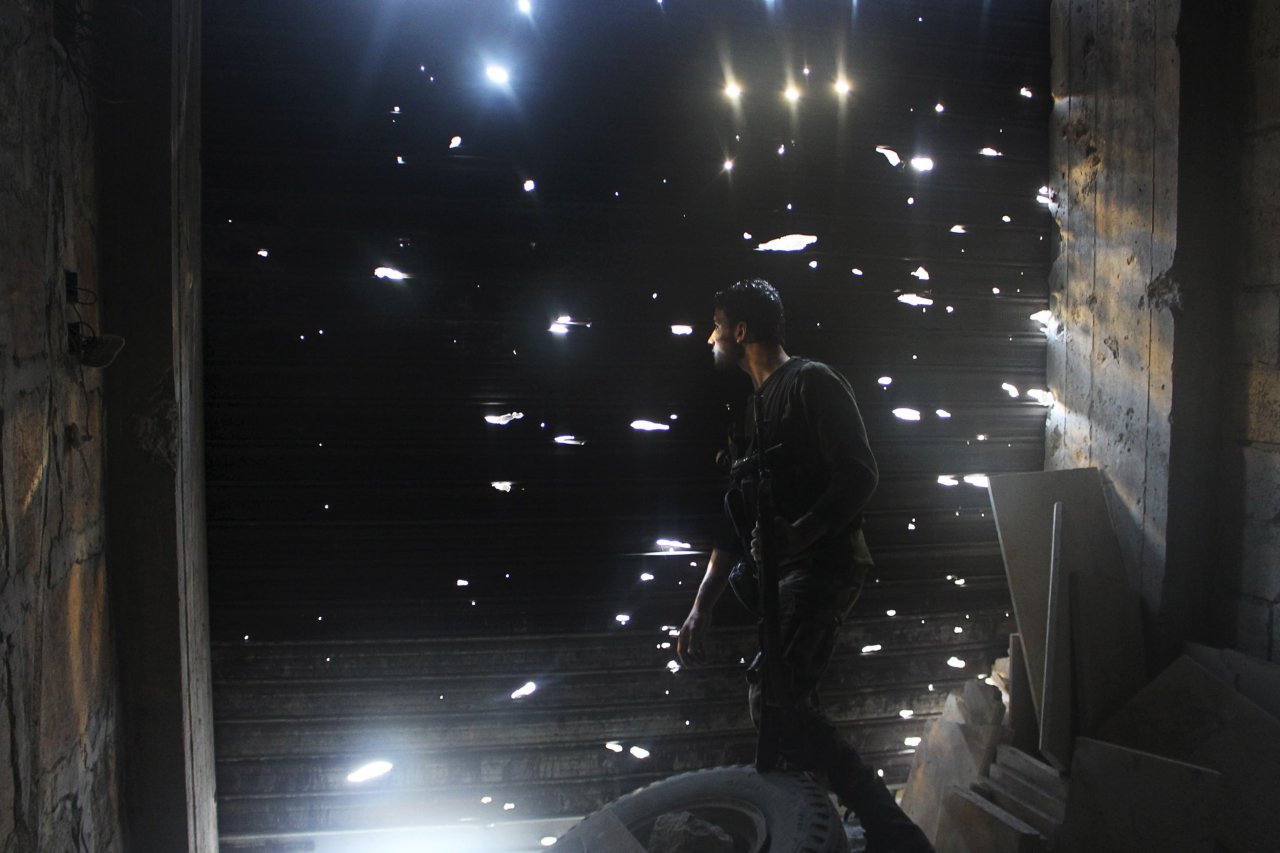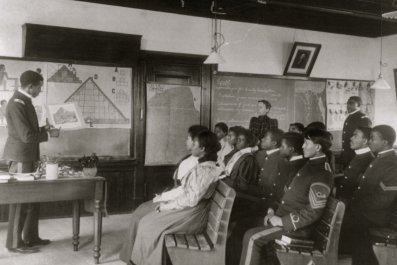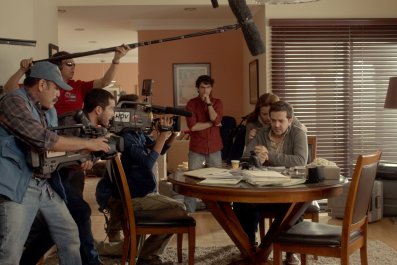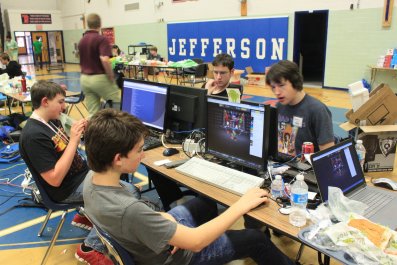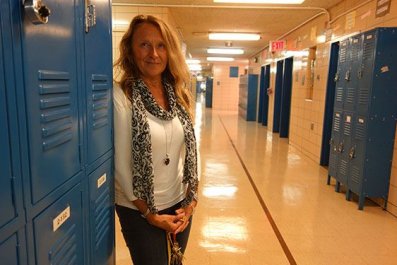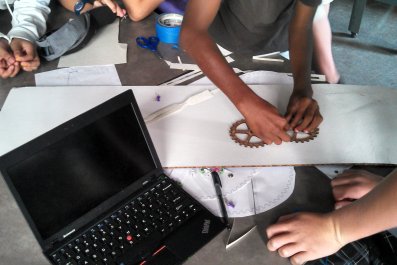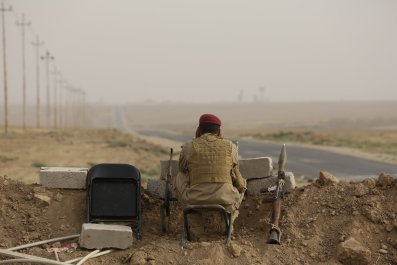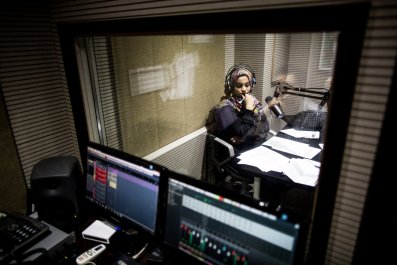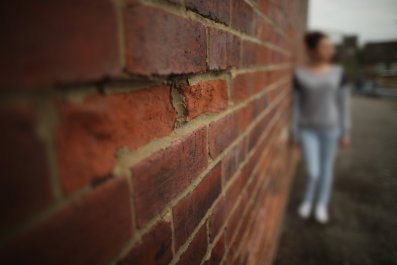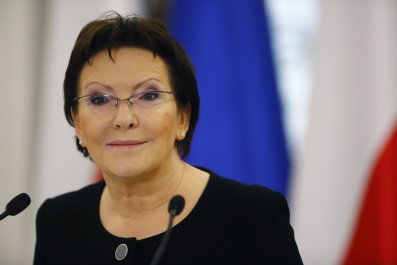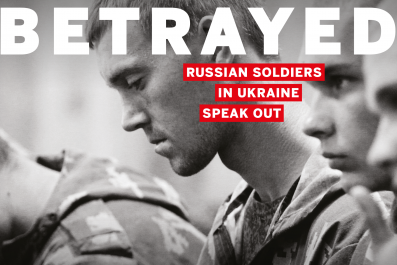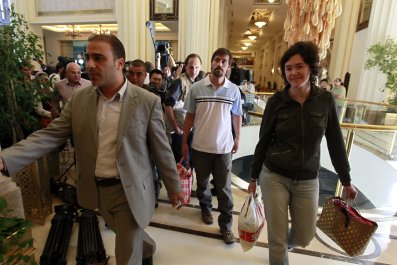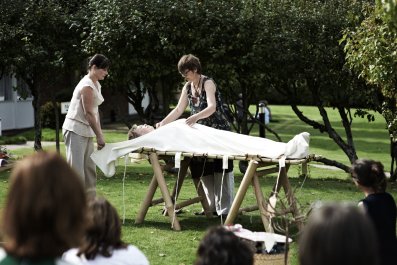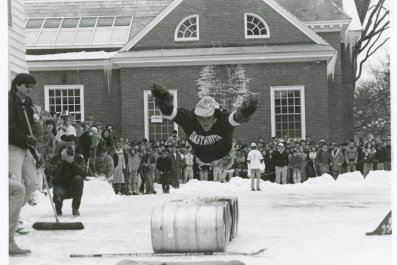It's 4 p.m. Damascus time, and Umabdul al-Halabi (Mother From Aleppo) is showing on Halab Today TV. It's a sitcom; inside a barber's shop, a fat man is being shaved by a man with silly hair.
"The heroine is a mother with a son called Abdul. The show is about what we civilians are suffering in Syria—water problems, no food, how to deal with the issues—but it's funny," explains Khaleel Agha, the 43-year-old manager of Halab Today TV, a satellite-TV channel of Syria's opposition forces. "Comedy is one way of fighting the regime."
Umabdul goes out daily in 10-minute episodes, part of the station's 24-hour, seven day a week schedule. As with much of Halab Today TV's output, Umabdul's production standards are poor, and it is all filmed indoors. But it represents a miracle of resistance to President Bashar Assad.
"Our outside set was destroyed by barrel bombs while we were filming," says Agha, referring to the barrels of explosives and shrapnel dropped by Syrian government planes. "We get about 35 barrel bombs a day on average in Aleppo, and 20 and 50 civilian casualties a day. You can still hear barrel bombs while we are filming and see the cast's reactions."
Aleppo, the largest city in Syria, with a pre-war population of over 2 million, has been the scene of bitter fighting for the past two years. Estimates vary between 13,500 and 23,000 dead. The city is divided between the Syrian government and opposition forces—and, massing on its eastern flank, the fundamentalist militant group Islamic State, better known as ISIS.
The station focuses on news from Syria, Syria in the world's news, documentaries, video footage by citizen journalists and religious programs. "We show that real Islam is not about killing," says Agha.
"Our main challenge for the TV station is fear," he adds. Halab Today has been threatened by both ISIS and the Assad regime. One of its journalists was recently kidnapped and killed by ISIS; another was wounded. A third, now in Turkey, escaped from ISIS only after his prison was bombed. Agha is speaking to me on Skype from Turkey, where the office has 50 staffers in an unnamed location. Twelve staff members are still based in Aleppo.
"Our reporters work in teams of three, but none of the other teams know each other. If one team is captured, I don't want to lose everyone else. None of them show their faces on TV. I have software that disguises their voices," Agha explains. "They all work from home. We used to have an office, but the regime bombed it, and ISIS kept coming to search it."
Halab Today TV's two anchormen and two anchorwomen do show their faces on TV, but work under false names and are based in Turkey.
Halab Today TV also exists online (www.halabtoday.org). It was founded in Aleppo two and a half years ago by an Aleppo businessman who wishes to remain anonymous. Before he was asked to run the station, Agha, a former factory manager, had no media experience.
"None of my staff have previous experience. We've learnt everything from the Internet. We are not the best, but we are the most popular Syrian opposition TV station," he claims.
Halab Today TV is part of an extraordinary and spontaneous journalistic movement in opposition-held parts of Syria. It has at least two main rivals, Orient TV and Souria al-Ghad, which transmit from Dubai and Cairo, respectively. This is in a country that, until the revolution three years ago, had only three national newspapers, which were government-controlled, and only state radio and TV.
The media revolution began in April 2011, when people first took to the streets. Assad swiftly banned foreign journalists, and Syrians began filming the uprising on mobile phones and posting footage on the Internet or sending it to international broadcasters. They became known as video-activists.
"They wanted to tell the world what was happening," says Armand Hurault of the Association de Soutien aux Médias Libres (ASML), a Paris-based media nongovernmental organization and implementing partner of the Syrian Media Action Revolution Team (SMART). ASML and SMART work with 300 people throughout Syria, Turkey, Jordan and France, supporting three radio stations, 12 newspapers and a dozen media offices inside Syria. They also give video-camera lessons on Skype and provide computers, printers, paper and ink, money and technical assistance.
It's difficult to nail down exactly how many independent magazines, newspapers and radio stations are now in Syria, as, given the war, most are very local and, in regime-controlled areas, underground. Some of the radio stations are only online. According to SMART, there are about 500 print journals and about 20 radio stations.
Syria's media revolution came of age a year ago, amid global apathy after the Assad regime's chemical weapons attack on the Damascus suburb of Ghouta on August 21, 2013. "Until then, Syrians had hoped that if they posted videos on the Internet, the world would come and sort it out," says Robin Yassin-Kassab, who is half-Syrian, half-British, still regularly travels to Syria and is the author of The Road From Damascus.
SMART started out by smuggling modems into Syria to help the video-activists broadcast their stories. It recently set up a network of radio antennae and, earlier this year, founded its own radio station, Hawa Smart, blurring the line between supporting and becoming part of free media.
"SMART is the largest Syrian independent media network as far as we know," says Tamara el-Khouri of the European Endowment for Democracy, a Brussels-based civil rights NGO that gave SMART a 129,000-euro grant for 2014. "There are other NGOs supporting media in Syria, but most are supporting online media, which is a problem, as there is only intermittent electricity in Syria."
But Internet activists face a challenge more sinister than lack of power. "Facebook has been their primary shop window, but recently people have been contacting Facebook and saying the videos on the pages are in contravention of Facebook's rules on violent content. So Facebook has been shutting the pages down," says Duncan Furey of the London-based Institute of War and Peace Reporting, which supports various Syrian media outlets. "We don't know who these people are, but the assumption is they are from Assad's regime."
The intimidation has been more brutal for many. Political cartoonist Ali Ferzat had his hands broken by government troops. Syrian singer Ibrahim Qashoush, famous for his revolutionary songs, was found dead with his vocal chords ripped out.
Still, the media boom has been liberating too. "Journalists found they could write whatever they wanted in the liberated areas," says Orwa Mohammed, a 25-year-old producer at Hawa Smart. Unlike many of the new generation of Syrian media people, he was a journalist before the war, in Damascus.
"Before," he says, "we had censorship on everything."



